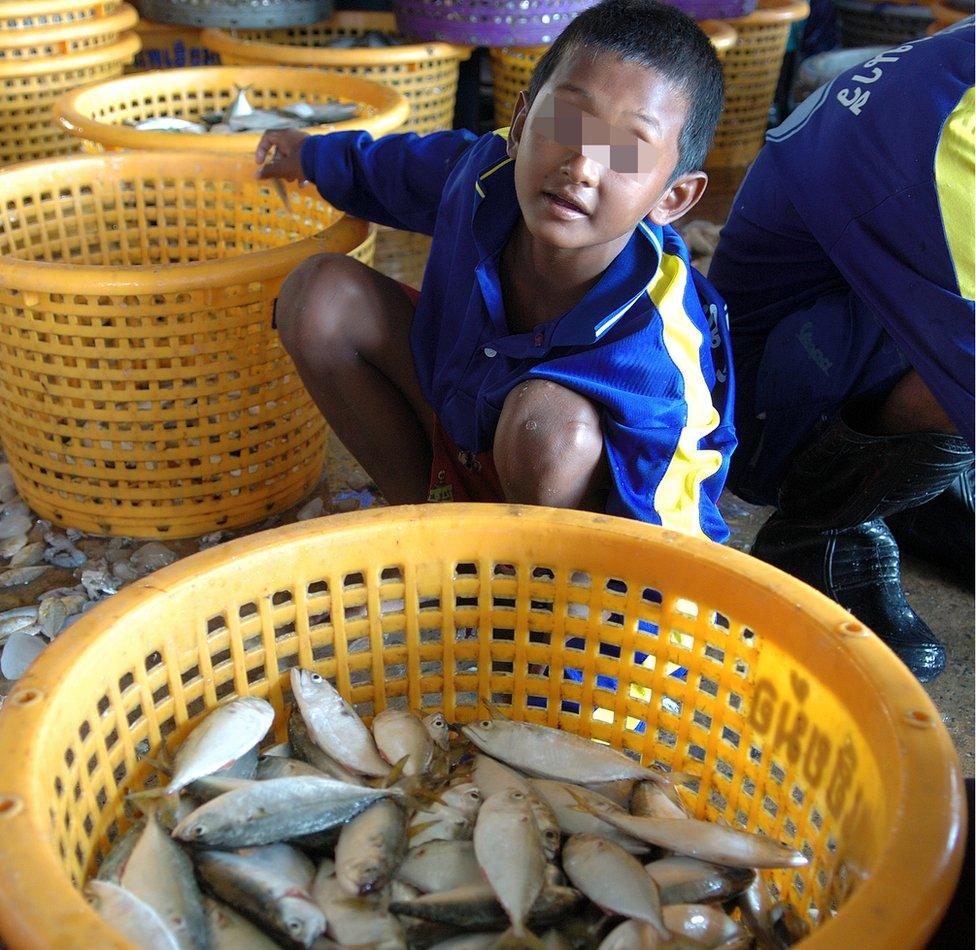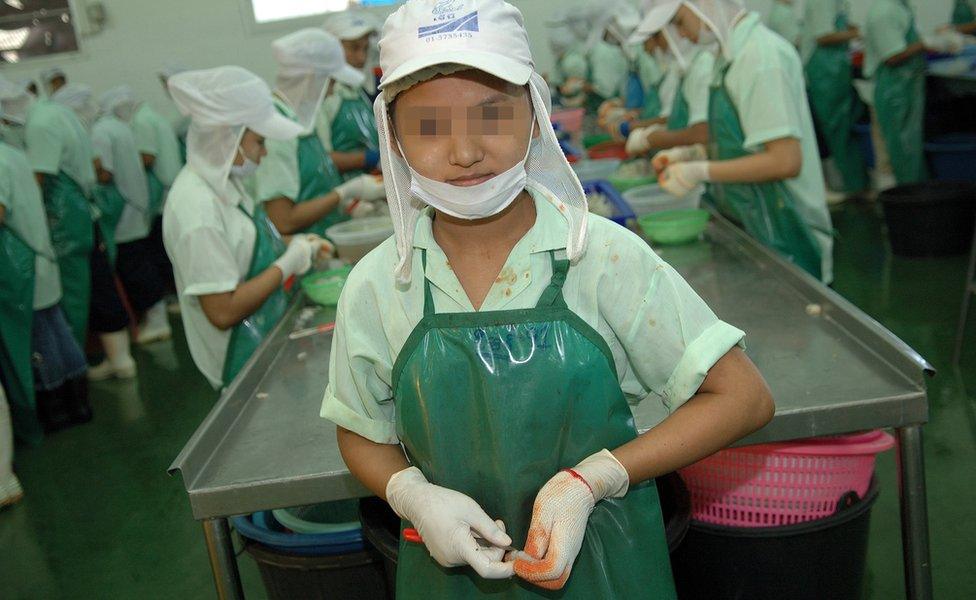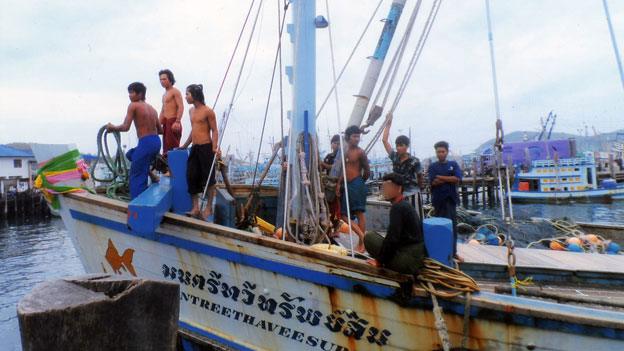Thailand's fishing industry 'puts children at risk', report says
- Published

Most of the young people in the trade are the children of fisherman from Myanmar and Cambodia
Children in Thailand's seafood processing industry are more exposed to workplace hazards and twice as likely to sustain injuries, a report has said.
More children in the seafood industry worked with fire, gas or flames compared to other industries, it said.
The report by the ILO and the Asia Foundation said 19.4% of children in those industries reported workplace injuries compared to 8.4% in others.
Rights group have accused the Thai seafood industry of using slave labour.
Human Rights Watch said in a report, external that fishermen from Cambodia and Myanmar (also known as Burma) are trafficked and forced to work on the boats. Their children make up most of the child population working in the industry.
Thailand is the world's third-largest seafood exporter globally.

The report recommends, among other things, that international buyers help implement international standards
"Child labour is truly unacceptable in the 21st Century," said Maurizio Bussi, officer-in-charge of the International Labour Organization's offices in Thailand, Cambodia and Laos.
"Unfortunately, it remains a symptom of existing labour market governance challenges, coupled with a lack of genuine alternatives for vulnerable workers and their families to freely avail of."
The report, external includes a number of recommendations including asking the Thai government "to provide equal treatment with regard to labour protection... regardless of nationality and legal status".
It also asks international buyers to "engage more directly with their suppliers" so that they may help implement international standards, including for labour.
- Published23 January 2014
